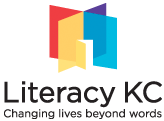Have you ever found yourself in a position where you know what you want to say but you can’t seem to find the right words to properly express your thoughts? One way to prevent this from happening is to expand your vocabulary, as the more words that you are familiar with, the less likely it is that you will struggle to express a thought or idea. Building a vocabulary that can adequately represent your needs and self-expression should be the ultimate goal of all people. Here are some ways that you can work to do so:
- Read Aggressively! Working to make reading a consistent habit is a great way to get exposed to new words. It can be challenging at times to make reading a priority, especially when you go through a transition like a new job or a transition out of schooling, when you may feel there is no time to read. To combat that, establishing a set reading schedule: whether it is reading a book a few times per week or reading the newspaper on a daily basis.
- Diversify your reading materials: To maximize your exposure to new words, switching between different genres and reading materials can be effective. For example, reading the current events section of the newspaper, a real estate magazine, a fictional romance novel, and a nonfiction history book would likely expose you to a larger bank of words than reading four of the same genre materials would (for example, four issues of the real estate magazine).
- Pay special attention to words that are new to you: write down new any unfamiliar words while reading to compile a list of words that you can then research the definition of. The process of writing each word down and then using a dictionary or online source to find the definition can help with memory.
- Read the thesaurus: look up words that you already like to use so that you can find alternative words to express the same idea. This will prevent you for utilizing the same base of words to repeatedly.
- Learn some Latin: many words in the English language have Latin roots through the usages of prefixes and suffixes. Knowing some of these words may be helpful in figuring out what a word means, even if you’ve never seen it before. Pick up an instructional book for your local library or book store. This website will help you to cross-reference English words with any Latin or Greek roots.
- Utilize online vocabulary quizzes and assessments: Quiz yourself on your vocabulary level and take quizzes and tests that will track how your vocabulary development is progressing. Merriam-Webster offers multiple versions of this vocabulary quiz that range in difficulty and awards scores based on accuracy and quickness.
- Sign up for the word of the day: Dictionaries such as the Oxford English Dictionary and Merriam-Webster offer free daily emails with a new word of the day. After reading it and reviewing the definition, you can make it your daily goal to correctly use the word at least once in conversation that day.
- Play word games, board games, and utilize applications: If you like physical print games, you can play crosswords and word searches in daily papers or in game booklets. Family games like Scrabble, Cranium,and Boggle are fun ways to get others involved. As far as phone or tablet applications, game applications such as Scrabble, Words with Friends, and Ruzzle all allow you the ability to challenge others and showcase your mastery of the English language. These games are especially fun if you are motivated by competition.
Some other helpful online resources that may help:
- Vocabulary.com allows you to learn new words and quiz yourself.
- For a series of different online games, visit wordplays.com, this list of interactive games, vocabulary games for children
- Here are some different online dictionaries and thesauruses: Cambridge, Oxford, Merriam-Webster, Dictionary.com
- Additional “Word of the Day” sites: Wordsmith, Dorland’s Medical Dictionary, Dictionary.com, Urban Dictionary (if you want to learn more about slang)
Do you have any other methods that you use to expand and improve your vocabulary? Email info@literacykc.org or call 816-333-9332 with suggestions!



